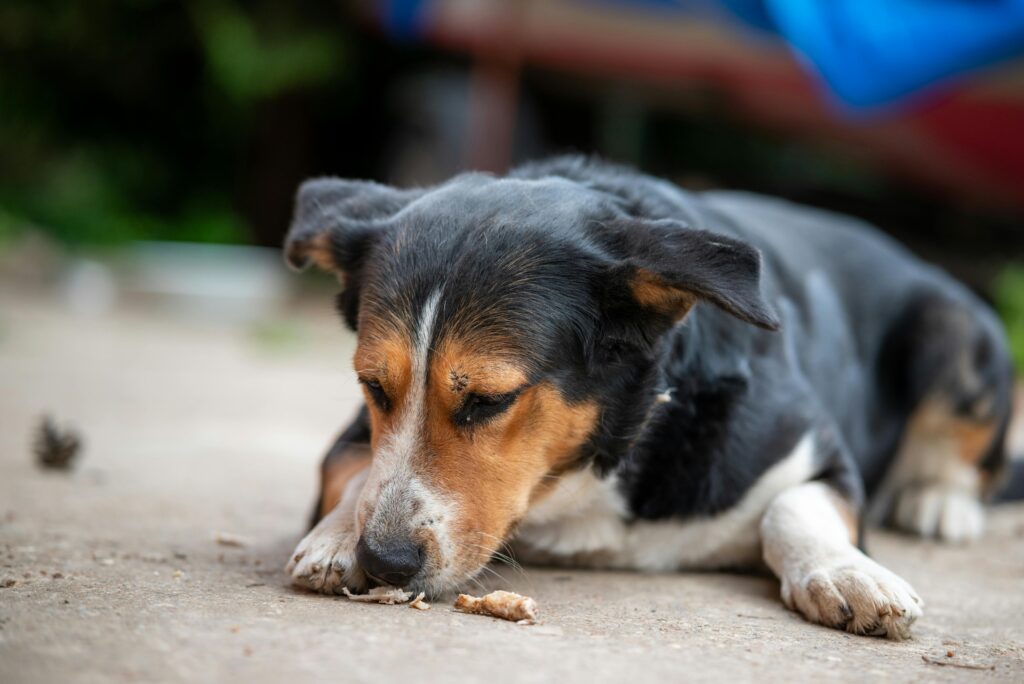
Attention: Have you noticed your senior dog munching on dirt and wondered if something’s wrong? It’s a behavior that can leave you scratching your head, especially if your furry friend has never done this before.
Interest: Dirt-eating in older dogs can be triggered by a variety of factors, from simple boredom to serious health issues. It’s important to understand what might be causing this unusual habit so you can take the right steps to help your dog.
Desire: Imagine having peace of mind knowing exactly why your dog is eating dirt and what you can do to address it. We’re here to break down the potential reasons and provide practical solutions, so you can ensure your senior dog stays happy and healthy.
Action: Dive into our guide to discover the common causes of dirt-eating in senior dogs and get actionable tips on how to tackle this behavior. Your dog’s well-being is just a few steps away!
1. Nutritional Deficiencies

Senior dogs sometimes eat dirt because their diet lacks essential vitamins or minerals like iron, magnesium, or calcium. Dirt contains trace minerals, and a dog with a nutritional deficiency might instinctively seek out those missing nutrients.
What You Can Do:
- Consult with your vet to check for nutritional imbalances.
- Switch to a senior dog food specifically formulated to meet the needs of aging dogs. These foods often contain joint-supporting supplements and enhanced nutrition for older dogs.
2. Pica
Pica is a condition where dogs compulsively eat non-food items like dirt, rocks, or plastic. This condition can be triggered by several factors, including medical issues or even cognitive decline, particularly in senior dogs.
Symptoms of Pica
- Eating non-food items regularly (dirt, rocks, plastic)
- Compulsive behavior
- Possible behavioral changes
How to Address Pica:
| Step | Action |
|---|---|
| Veterinary Evaluation | Consult your vet to check for medical issues or gastrointestinal problems. |
| Behavioral Training | If no medical cause is found, work on behavioral training to manage the habit. |
| Environmental Enrichment | Increase mental stimulation through toys and activities to curb compulsive behavior. |
3. Gastrointestinal Upset
Your senior dog might eat dirt as a way to soothe an upset stomach or relieve indigestion. However, this can sometimes make the problem worse, as dirt may contain harmful bacteria or parasites.
Signs of GI Upset:
- Vomiting
- Diarrhea
- Loss of appetite
What You Can Do:
- Monitor your dog’s digestive health closely.
- Modify their diet to include more fiber and probiotics, which can support better digestion.
4. Cognitive Dysfunction Syndrome (CDS)
As dogs age, they may develop Cognitive Dysfunction Syndrome (CDS), similar to dementia in humans. Dogs with CDS may exhibit unusual behaviors like eating dirt due to confusion or restlessness.
Symptoms of CDS:
- Disorientation or confusion
- Changes in sleep patterns
- Increased pacing or restlessness
Caring for a Dog with CDS:
| Issue | Suggested Solution |
|---|---|
| Disorientation | Keep a consistent routine and familiar environment to minimize confusion. |
| Restlessness | Use calming products such as CBD oil (vet-approved) or provide a quiet space. |
| Mental Stimulation | Introduce puzzle toys or simple games to keep their brain engaged. |
5. Stress or Anxiety
Older dogs may develop anxiety due to changes in their environment or physical condition (e.g., loss of hearing or vision). Eating dirt may be a way for your senior dog to cope with stress or anxiety.
Common Stress Triggers:
- Changes in routine or household dynamics
- Declining senses (hearing, vision)
- Pain or discomfort from medical conditions
What You Can Do:
- Minimize environmental changes: Keep their routine consistent and offer comfort through gentle interaction.
- Consider calming supplements: Talk to your vet about using natural calming products such as CBD oil or calming chews to reduce anxiety.
6. Boredom or Lack of Stimulation
Senior dogs may eat dirt due to boredom or a lack of mental and physical stimulation. If your dog isn’t as active as they used to be, they may find other ways to engage with their surroundings.
Signs of Boredom:
- Restlessness or pacing
- Destructive behavior, like chewing or digging
- Increased attention-seeking behavior
Ways to Combat Boredom:
| Activity | Description |
|---|---|
| Interactive Toys | Use puzzle toys to keep your dog mentally engaged and prevent boredom. |
| Daily Walks | Even short, gentle walks can provide physical and mental stimulation. |
| New Tricks | Yes, you can teach older dogs new tricks! Simple training sessions can be fun. |
7. Medical Conditions
Certain medical conditions like anemia, thyroid imbalances, or gastrointestinal problems can lead to odd behaviors like dirt-eating in senior dogs.
What You Can Do:
- Visit the vet to rule out or diagnose any underlying medical conditions.
- Follow treatment recommendations to manage any diagnosed health issues.
When to See a Vet

If your senior dog is regularly eating dirt, it’s important to monitor their health and behavior closely. While an occasional nibble on dirt might not be harmful, regular consumption could introduce harmful bacteria or toxins into their system.
Seek Veterinary Attention If:
- Dirt-eating becomes a frequent or compulsive behavior.
- The behavior is accompanied by other symptoms like vomiting, lethargy, or changes in appetite.
- You notice additional signs of medical conditions like anemia, cognitive decline, or gastrointestinal issues.
Conclusion
Seeing your senior dog eating dirt can be concerning, but there are several potential reasons for this behavior—ranging from nutritional deficiencies to stress or boredom. By understanding the causes and taking appropriate action, you can help keep your senior dog healthy and comfortable.
Remember, it’s always best to consult your veterinarian to rule out any medical concerns and ensure your dog receives the care they need. With proper attention and care, your senior dog can continue to enjoy their golden years to the fullest.
